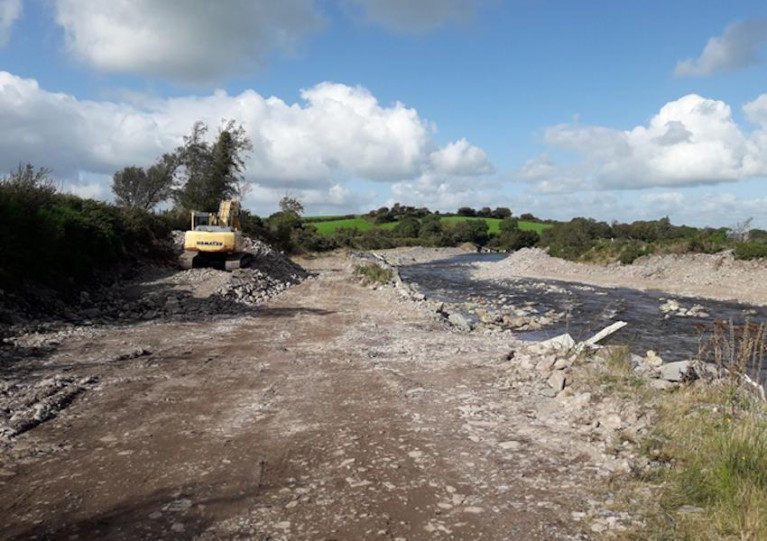Displaying items by tag: Gaddagh River
A farmer from Beaufort in Co Kerry was convicted and fined €3,300 plus costs following a prosecution taken by Inland Fisheries Ireland (IFI).
In a hearing at Caherciveen District Court on Thursday 10 December, Judge David Waters convicted Raymond Breen under Section 173 (d) of the Fisheries Consolidation Act 1959 for carrying out works in the Gaddagh River which damaged sensitive spawning beds.
While a charge of obstruction was struck out, Judge Waters commented that he could not ignore the defendant’s behaviour when considering the appropriate penalty.
The Gaddagh River, a tributary of the River Laune and in a Special Area of Conservation (SAC), is an important spawning habitat for Atlantic salmon, a species protected under Irish and European law.
The court heard evidence that an inspection carried out by IFI fisheries officers discovered substantial amounts of spawning gravel removed from the river and stock-piled along a 250m section of bank.
Heavy machinery tracks were recorded across the riverbed, the protected spawning gravels and on both banks.
Evidence was given that the engine of a tracked earth-mover at the site was hot when discovered but the driver could not be located. The scene was described in court as a “working site”.
Sean Long, director of the South Western River Basin District at IFI, said: “This is a serious environmental crime. The removal of gravel from spawning beds will directly impact our already endangered Atlantic salmon stocks by drastically reducing usable spawning gravel.
“We urge all landowners to take responsible action and to contact their advisors or Inland Fisheries Ireland before carrying out any works that may damage watercourses on or adjacent to their land.”





























































